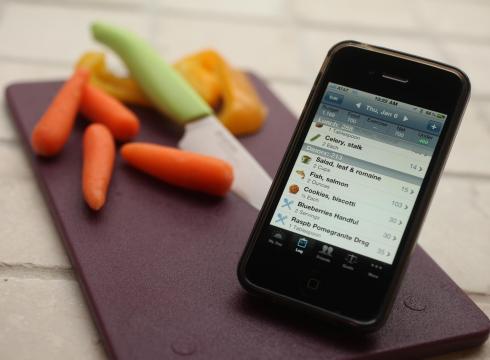As a weight-loss specialist, I’ve witnessed the power of journaling and its contribution to reaching personal health goals. Not only does journaling help one reach their goals; success is likely to be sustainable. Research shows that participants who keep a daily record of their food lose 64% more weight compared to those who don’t. The act of journaling enhances both accountability and awareness; two keys to goal achievement.
Many moons ago, journaling required a pen to paper. My, how times have changed! Today, virtual journaling via phone or computers equip us with instant gratification and automatic feedback.
Journaling: A Tool, Not a Lifelong Must
It’s important to remember, that journaling is a tool in your weight management toolbox. It’s not required for any period of time. You can pick it up when you are trying to lose weight or to be sure you’re eating enough carbs for marathon training. My two favorite apps are “Lose It” and “My Fitness Pal.” Regardless of the online journal you decide to use, read on for tips to make the most out of your journaling experience.
Getting Started with Journaling
Most journaling apps require you enter your age, gender, height, current and goal weight, and activity. This allows the app to determine daily calorie goals. For those seeking weight loss, most sound programs will limit maximum weight loss to 2 pounds per week. Losing more than 2 pounds per week is typically attributed water loss and lean tissue (muscle), which is not the goal!
Logging Foods
As you begin your journal, don’t waste time trying to find the exact food/recipe. The goal of logging your foods is not to find the exact food match, but to find a food similar in portion and main ingredients. The sheer act of logging is what supports your health goals, not the accuracy of every entry. Make it easy on yourself!
If you eat like most of us, the range of your food choices (especially at breakfast and lunch) is small. We often eat the same foods over and over. Due to that fact, after logging for 1-2 weeks, you might find that journaling takes significantly less time then it did when you started. Once foods have been entered, they’re easier to find and add.
Tracking Exercise
In addition to logging your foods, programs offer the option to enter physical activity as well. Most programs will give you additional calories to eat based on how much exercise you completed. As an example, if your calorie goal was originally 1500 calories, and you burned 300 calories in exercise, the app ups your calorie goal to 1800 calories/day. If your goal is weight loss, I often caution my clients to indulge in their exercise calories for two reasons: 1) many on-line programs overestimate the amount of calories we burn in exercise 2) sticking with the goal calorie budget (1500 calories, in this case) will allow you to lose the weight at a faster rate. Remember, it is much easier to EAT 300 calories than burn 300 calories in a 3-mile run.
Goals
Another valuable feature of online journals/apps is the ability to log daily weights. In appropriate cases, I encourage my clients to weigh often (weighing in the buff, first thing in morning, after using the restroom is the most accurate way to do this).
While knowing body weight is valuable, I actually place greater value on body fat and muscle mass. The goal in weight loss is to maintain muscle, so assessment of body composition is important.
While weighing daily might not be for everyone, the act of recording morning weights supports awareness and accountability. It is important to know that weight is affected by hydration status, glycogen storage (1 gram of carbohydrate holds on to ~3 grams of water), “waste” in your body, and hormones. It is very normal for a weight to bounce between 1-4 pounds on a daily basis. Accept that fluctuations in weight are normal, and the real emphasis should be on weight trends over time.
Beyond the Numbers
Logging your daily intake and receiving quantitative feedback is motivating for many, but I also believe the lesson goes beyond the numbers. Honest logging allows you to face potential emotional and mindless eating, and encourages you to “pause” before putting something in your mouth if you have to record it. Embrace these savvy tools to as an opportunity to learn and grow in your journey to good health!

